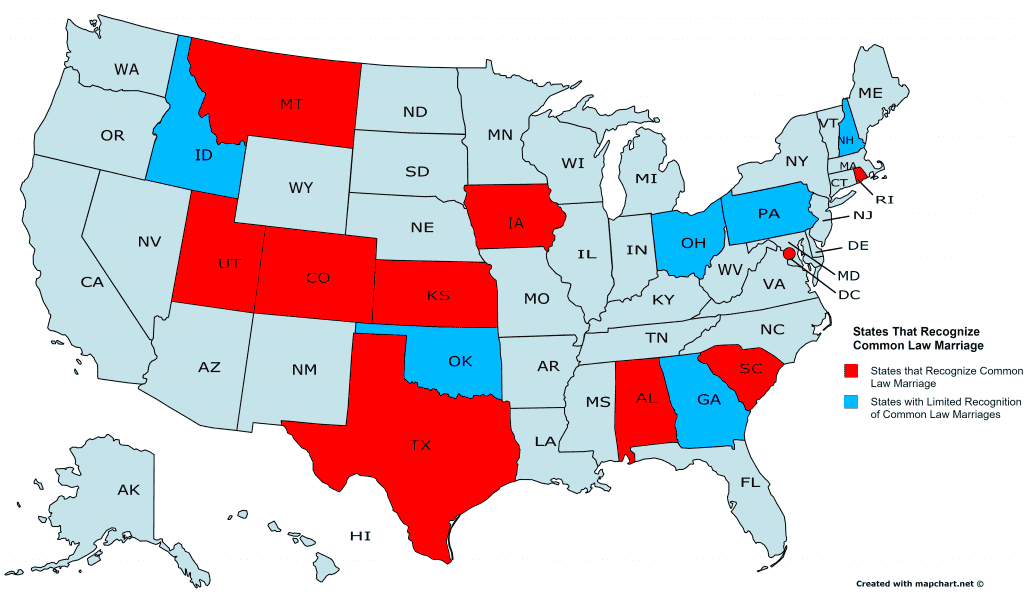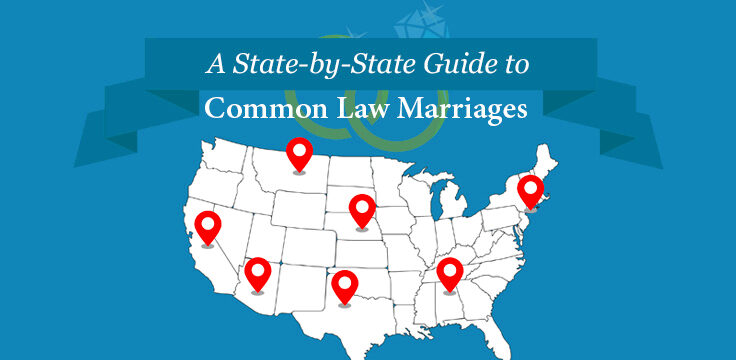Does New York State Recognize Common Law Marriage
Common law marriage is a concept that sparks curiosity among many. It refers to a union where a couple lives together and presents themselves as married without formally registering their marriage. In New York, understanding the nuances of common law marriage is essential, especially if you’re considering your legal rights and responsibilities. This post will clarify what common law marriage means in New York, its legal status, and how it differs from traditional marriage.
Understanding Common Law Marriage

Common law marriage is based on the idea that a couple can establish a marital relationship through their actions and intentions rather than through formal ceremonies or registrations. Here are some key points to consider:
- Intent: Both parties must intend to be married.
- Cohabitation: The couple must live together for a significant period.
- Public Representation: They must present themselves to others as a married couple.
While common law marriage is recognized in several states, New York is not one of them. Couples in New York cannot enter into a common law marriage, even if they meet the criteria mentioned above.
Legal Status of Common Law Marriage in New York
In New York, the legal status of common law marriage is clear: it does not exist. The state abolished common law marriage in 1933. This means that if you live together as a couple without formally marrying, you do not have the same legal rights and responsibilities as married couples. Here are some implications:
- No Legal Recognition: Couples cannot claim spousal rights, such as inheritance, health benefits, or tax advantages.
- Property Rights: Assets acquired during cohabitation are not automatically shared.
- Custody Issues: In the event of a separation, custody disputes can become complex without legal marriage.
However, if a couple in New York has been together for a long time and later decides to marry, their cohabitation may strengthen their relationship during the marriage process. Still, it’s essential to understand the legal implications of living together without formal recognition.
Requirements for Common Law Marriage
Since New York does not recognize common law marriage, there are no official requirements to establish such a union in the state. However, in states that do recognize it, certain criteria typically apply. Understanding these requirements can be helpful if you ever move to a state where common law marriage is legal. Here’s a general overview of what’s usually needed:
- Mutual Agreement: Both partners must agree to be married and have a mutual intent to enter into a marital relationship.
- Cohabitation: The couple must live together for a significant period, although the exact duration varies by state.
- Public Declaration: The couple must present themselves to friends, family, and the community as a married couple. This can include using the same last name or referring to each other as spouses.
While these elements are essential for states that allow common law marriage, it’s crucial to remember that in New York, meeting these criteria does not result in a legally recognized marriage.
Differences Between Common Law Marriage and Traditional Marriage
Understanding the differences between common law marriage and traditional marriage can help clarify many legal rights and responsibilities. Here are some key distinctions:
| Aspect | Common Law Marriage | Traditional Marriage |
|---|---|---|
| Formation | Established through mutual agreement and cohabitation. | Formalized through a legal ceremony and registration. |
| Legal Recognition | Varies by state; not recognized in New York. | Recognized by all states and the federal government. |
| Rights | Limited legal rights; may not have automatic inheritance or tax benefits. | Comprehensive legal rights, including inheritance, health benefits, and tax advantages. |
Ultimately, the primary difference lies in the formal recognition of the relationship. While traditional marriage provides a clear legal framework, common law marriage relies on the couple’s actions and intentions.
Implications of Common Law Marriage
The implications of common law marriage can be significant, especially in states that recognize it. Here are some key points to consider:
- Legal Rights: Couples in a common law marriage may have rights similar to those in a traditional marriage, such as property rights and spousal benefits.
- Separation and Divorce: Ending a common law marriage typically involves a legal process similar to divorce, including asset division and custody arrangements.
- Inheritance: In some states, partners in a common law marriage may inherit from each other, while in others, this right is not guaranteed.
However, in New York, the lack of legal recognition means that couples living together without formal marriage do not enjoy these rights. This can lead to complications if the relationship ends or if one partner passes away. For those considering cohabitation without marriage, it’s essential to understand these implications and perhaps seek legal advice to protect your interests.
Ending a Common Law Marriage
Ending a common law marriage can be complex, especially since it may not have the same formalities as traditional marriage. In states that recognize common law marriage, couples must go through a legal process to dissolve their union, similar to divorce. Here’s what you should know:
- Legal Separation: Couples may need to file for legal separation, which can involve negotiations about property and custody.
- Divorce Proceedings: In states that recognize common law marriage, the couple must go through divorce proceedings to legally end their relationship. This includes filing court documents and possibly attending a hearing.
- Division of Assets: Just like in a traditional divorce, assets accumulated during the relationship may be subject to division based on state laws.
- Custody Issues: If there are children involved, custody arrangements must be addressed, which can lead to complicated legal battles if the relationship wasn’t formalized.
For couples in New York, it’s important to understand that since common law marriage isn’t recognized, they don’t have to deal with the legal implications of ending such a marriage. However, if a couple has been living together for years, they may still need to address shared property and other issues when separating.
Frequently Asked Questions about Common Law Marriage
Many people have questions about common law marriage, especially since it’s often misunderstood. Here are some of the most common queries:
- Is common law marriage recognized in New York? No, New York does not recognize common law marriage.
- What if I move to a state that recognizes common law marriage? If you move to a state that recognizes it and meet their criteria, your relationship may be recognized as a common law marriage.
- Can I get benefits from my partner if we’re not married? Without a legal marriage, you may not have the same rights to benefits like inheritance or health insurance.
- How do I prove a common law marriage? In states that recognize it, proving a common law marriage typically involves showing evidence of cohabitation and mutual intent to be married.
If you have further questions, consulting a legal professional can provide clarity tailored to your situation.
Conclusion on Common Law Marriage Recognition in New York
In summary, New York does not recognize common law marriage, which means that couples living together without formalizing their relationship do not have the same legal rights and protections as married couples. This can lead to complications, especially concerning property rights, inheritance, and custody issues. For those in New York, understanding these limitations is essential when considering cohabitation without marriage. If you’re in a long-term relationship, it may be wise to explore formal marriage or consult a legal expert to ensure that both partners are protected. Knowledge is power, and being informed can help you navigate your relationship with confidence.


